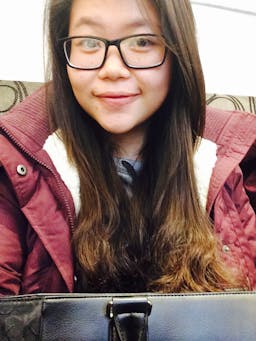LET ME CHANGE
Apr 28, 2022
First story
For a long time, I thought of education as a veil. That all changed when I was introduced to computer science. In the summer of 2008, when I was 9, I had the chance to learn MS Office at the Children’s House. I became obsessed. I loved it so much that I found myself giggling all the time as I discovered how to make words appear on the screen and create pie charts based on data tables. Although this is now basic computer knowledge, I became curious about the potential of computing. I loved feeling engaged and was super-mega-excited about my coursework.
Soon, I switched into a higher-level class that was using Pascal as the language base. Four months in, I created my first project, a tic-tac-toe game, and a stone-based textured background for my class presentation. For the first time, I felt like class was worthwhile. This was my outlet to be creative and curious. I continued self-studying varied complex algorithms from reference materials. Though difficult, I was never bored. I felt free to explore. I could be an independent thinker. I was hooked to everything related to computing.
This was so important to me because, before this, schools in my country, Vietnam,was a nightmare. My dislike of school started from day one. On my first day of kindergarten, I wouldn’t stop crying, so my teacher decided to punish me by leaving me in a barn with a German shepherd. She only let me out once I stopped crying. Shortly after, my mother decided to switch me to a different school, but that abysmal first day of kindergarten has, in my mind, shown me how disenfranchising education could be. Even years later, my impression of school did not improve. For example, I remember clearly how, one day in secondary school, I had taken the initiative to do additional research for my Biology homework. I thought I would earn extra credit for my initiative, but was instead punished for using alternative resources. I was penalized for exploring new concepts and being different. That was when I realized that my school did not encourage independent thinking.
However, as I continued to learn programming at the Maine Central Institute, I discovered programming as a new avenue to build things and as a source of unconstrained, independent learning. Since my first computing class, I have taken every opportunity to register for classes and challenge myself. In the Thomas Cup Competition, I was in charge of writing the code by using Python for my first time to navigate a robot through an obstacle course. It wasn’t just about applying what I have learned from other computer languages, but using my skills to try different methods and creatively problem solve to lead my team’s robot go in the right direction in the shortest amount of time. I revelled under the intense atmosphere; rushing to fix errors under the time pressure, the relief and adrenaline that I felt when my code finally worked was incredible. I cannot wait to dig deep, continue exploring and build my computing knowledge. I want to continue in the footsteps of the women engineers before me.
My experiences have shown me the importance of computer science in fostering creative and independent learning environments. I have realized the importance of being able to possess the skills to create anything from a disparate piece of structure. In today’s world, where information and web infrastructure grow increasingly dynamic, I want to move in a direction where I can encourage creativity in future generations. Through workshops, low-cost courses and competitions, I want to see children in the future using computers to fuel their abilities to be innovative. To me, making tech education accessible means young kids are able to enhance their schooling experience however they want to. I hope to support young students from the early stages to have a similarly liberating experience as I once did.




